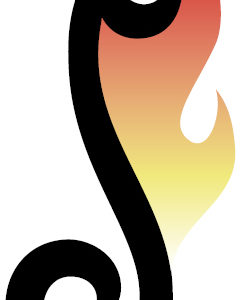Freelance writer Stuart Rice interviews Gary Doherty, the former executive director of Drum Corps International’s OnQ Performance Education division, about his history and his opinions regarding the drum corps activity, changes at DCI and the future of music education.
Part 2 (in a three-part series): Marching Standards
Stuart Rice: An OnQ press release last December stated that MENC: The National Association for Music Education was to advise OnQ about establishing “educational standards governing curriculum and events.” Halftime Magazine, in its announcement of OnQ Performance Education, described this as an effort to establish “a set of national standards and curricula for marching organizations.” What kind of standards are we talking about?
Gary Doherty: Dan Acheson assembled a “blue ribbon” panel of music educators from across the country to discuss these standards: concerns, vision and expectations of marching band units in school settings. The first meeting was held in Milwaukee at the MENC national convention in April. The next meeting is slated to occur the week of the DCI Championships in August.
SR: Who will represent DCI at this meeting?
GD: Dan Acheson is the chair of the committee.
SR: Can we expect standards to come from this meeting? If so, when, what kinds and for whom?
GD: This is a multifaceted project. There will be “standards” that educators can use to “measure” the achievement of their individual marching ensembles. The first documents should be available by next spring (2009) although Dan Acheson is driving the calendar for this activity.
SR: Why does DCI need to develop educational standards?
GD: I think this question would best be answered by the CEO of Drum Corps International, Dan Acheson.
SR: How do you see MENC assisting DCI with this?
GD: MENC is the “voice of music educators” around the country. Their partnership brings validity to the process.
SR: MENC established standards for music education as early as 1994. Why would they change them for drum corps?
GD: Standards, like curriculum and pedagogy, is an ever-changing/evolving system of outcomes. The focus for these standards is on school marching bands, not necessarily the drum corps themselves.
SR: Standards for marching, flag, rifle and rudimental drumming (all of which DCI inherited) have become somewhat diluted and passé within the now-eclectic activity and are not well correlated among the various corps curricula—to say nothing of what has become of the bugling arts, favored by outdoor acoustics. Does the creative administration of DCI today demonstrate the standardization and consensus needed to present the marching arts to a panel of music educators? Is DCI ready to lobby national standards for the marching arts? Or will this become an “introductory dialogue” that may yield fruit down the road?
GD: In my opinion, this will be an introductory dialogue that may yield fruit down the road.
SR: Promoting involvement in drum corps remains a challenge for DCI despite its monumental effort to communicate with music educators over the last decade or so. How do you see this relationship being cultivated more productively (beyond the dimension of drum corps music), in the recruitment, retention, and establishment of new drum corps organizations and participants?
GD: All relationships rise and fall on communication. In my opinion, each constituency must be given opportunities to speak and to listen.
SR: Without DCI’s involvement, how and where can we expect to see an education constituency develop for the activity?
GD: That is a good question. My primary mission (my personal one) was to attempt to create a better dialogue between the drum corps activity and the music education community at large. Again, and this is my opinion, without a dialogue and a sense of “community” between the rank and file educators and the “movers & shakers” of the drum corps community, we will all limit our scope and impact on our communities.
Check back on July 29 for the third and final installment in this Q&A with Gary Doherty.
About the Author:
Stuart Rice is a veteran of 20 marching seasons, serving as a member, instructor and choreographer of marching in junior high, high school, college, drum corps, winter guard and professional settings. Rice’s marching research has been presented at the University of Rochester Visual and Cultural Studies Conference in 1994 and the American Sociological Association Collective Behavior and Social Movements Workshop at the University of California at Davis in 1998. His analysis of Drum Corps International World Championship Finalist drill is published extensively in Drum Corps World magazine. Rice holds a Bachelor of Music Degree from the University of Utah.

